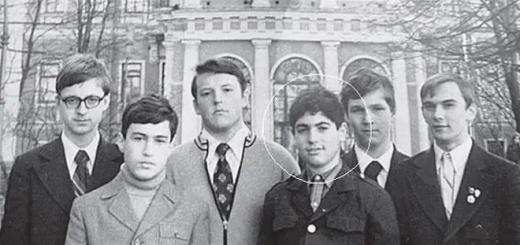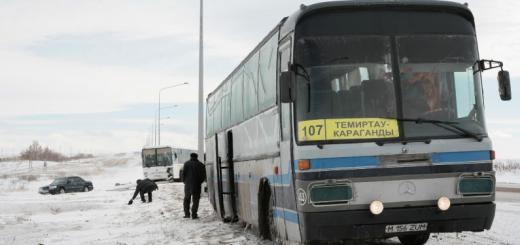Quite often people ask who a social teacher is. This is a question that worries many young parents and some teachers. After all, it seems that the teacher is like that everywhere. But what does “social” have to do with it then? Does this employee really have any specific responsibilities at the school that distinguish and set him apart from the mass of other teachers? A social educator, one might say, is an eternal and incomprehensible mystery for many. Only today we will try to lift the veil of secrecy and figure out what’s what. That is, let’s take a closer look at this important work.
Who it
Of course, a social pedagogue is a teacher. And mainly in schools. But how is he different from an ordinary teacher? Many people think that it is nothing. Except for the name. But in reality this is not the case at all. The thing is that a social teacher at school is a very important employee. Why?
Yes, because he, in theory, should have a better understanding of children’s behavior and psychology, which helps such an employee better organize classes. Plus, a social teacher, according to some directors, should deal with the worldview and education of students. And it is right. But such an employee has a lot of different tasks. And they can be said to be unlimited. Let's try to figure out with you what the work of a social teacher with children is. This is not as difficult as it might seem at first glance.
Socialization
The first point that can only be assumed is social assistance to students. We can say that a social teacher is, to some extent, a profession that combines an ordinary teacher and a psychologist. Only usually such an employee tries to help the children in the process of socialization. And adaptation to a new place of study if the child was transferred for some reason to another school.
To be honest, the activities of a social teacher are very clearly visible in kindergartens and primary schools. There, children are taught to communicate with adults, peers, and also learn how to behave in society. Without this it is impossible to imagine a reasonable person.

However, this is not the only responsibility of such an employee. There are still a lot of them. And do not confuse a psychologist, a teacher and a social educator. Although all three of these professions, interpreted at school, are very similar to each other. Especially regarding some educational issues.
Adaptation
As already mentioned, a social teacher sometimes helps new students adapt to school. And just adaptation (not only of new employees) is another responsibility of such an employee. Moreover, this also applies to employees of educational institutions.
It should also be mentioned that the social educator in school is obliged to develop concepts that help maintain a favorable environment in the workplace and school. Only in practice this point is taken into account extremely rarely. Or it is not always possible to bring it to life.

The main problem in creating an environment conducive to learning and working is the community. In each educational institution, different personalities come into contact. And if you take everyone into account (as this should be done), then finding a “golden mean” is simply impossible. Thus, the creation of a favorable atmosphere at school, as well as assistance in adaptation to employees of the institution, as a rule, rests on the shoulders of psychologists. Or they are completely omitted.
Upbringing
The work of a social teacher includes responsibilities for educating the younger generation. That is, you will have to shape the values and worldview of children. Usually this task is assigned to a kindergarten or elementary school, where children are still very easy to influence.
However, in reality this trend is also extremely rare. After all, often the work of a social teacher at school consists of “resolving” disputes between children and simply conducting a lesson on a particular subject. But sometimes such employees are specially appointed as class teachers - here you will have to deal with the “education” of schoolchildren, regardless of your desires.
Consultations
An extremely important point that can only be encountered is the provision and conduct of consultations. The social teacher's job description includes this item. Moreover, you will have to help and advise on various issues.

For example, give advice to teachers and help them organize classes correctly so that they are interesting to students. Or attend parent-teacher meetings and have conversations regarding the behavior of each student in general. In addition, sometimes the child psychologist will have to be replaced. Especially when it comes to socialization and adaptation to a new place of study. This is not adaptation, but rather establishing contact with teachers and peers. In such a situation, the social teacher is the one who must advise the student and give him advice on communication. Moreover, it is very important to observe the emotional state of the student at this moment.
In reality, it usually turns out that social educators simply teach classes and attend parent-teacher meetings. Especially when children have problems with behavior or grades. In such cases, teachers are really ready to give advice and recommendations. In most cases they turn out to be effective and efficient.
Organization of events
To be honest, a social teacher is not only a teacher. It is also a good organizer. That is, the responsibilities of such an employee include conducting and organizing various events. For example, holidays.

It is social educators who must search for a suitable location for the holiday, as well as organize this or that event. Developing a plan, promoting an idea - all this is the responsibility of our current employee. Usually, there are no problems with holidays - just conduct a survey among teachers, students and parents, and then choose the most suitable place.
The main problem in organizing events arises when they relate to the educational process. That is, a social teacher is obliged to take care of various activities for training and improvement of teachers, as well as students. As a rule, outside of school hours. A good worker must not only conduct and organize such a lesson, but also attract the “public” to it.
Employment
There is also another very specific matter that concerns our profession today. We are talking about assistance in finding employment for students. The methods of a social teacher, as a rule, should help children choose the most suitable profession for themselves, as well as a convenient place to work and build a career ladder.

But in practice no one observes this obligation. Is it really possible now to imagine a student who would turn to a social worker for help in finding a job? Of course not. Thus, usually finding a job for a schoolchild is a purely individual task for parents and their children, which in no way applies to social educators.
But there is one small problem. Often such employees conduct special tests for career guidance. The results, in turn, become very good helpers and advisers for young schoolchildren when choosing a place of work. We can say that a modern social teacher at school provides indirect assistance to children in choosing a profession and finding a job.
Behavior Analysis
A social educator is not only a teacher who combines the skills of an organizer and consultant. He is also a good analyst. He, as a rule, must monitor students and analyze their behavior. If problems arise, report to the class teacher and parents. And, of course, give advice on how to fix the problem.
This obligation is rarely realized in practice. After all, deviations in behavior are often reported by ordinary teachers who conduct lessons in classrooms. Nevertheless, a professional social teacher must be able to start “sounding the alarm” in time, as well as correctly draw conclusions regarding the child’s behavior. Psychology is very helpful in this matter.

If necessary
So we have studied with you the profession of a social teacher. As you can see, his activities are extremely varied, and his responsibility is enormous. Therefore, you have to think whether it is worth applying for this position.
There is no clear answer here. If you have a passion for teaching children and raising them, then you can try it. Just be prepared for a busy work schedule, as well as stressful work and a low salary. As a rule, social educators are found among older people.
Young employees are not particularly happy about this place of work. We can say that over time it begins to become outdated and loses its relevance. In particular, due to the lack of professional personnel. This is understandable - no one will study at a university specifically in order to earn pennies later.
I work as a social teacher in the Ryazan region at a school. Salary 4.5 thousand, i.e. below the subsistence level. This indicator is reached with points (incentives). I work with a higher education, I have been working for 2 years. The category can be applied for 3 years after the start of work, but it will not bring significant changes. Therefore, you will still beg. There's a lot of work, and even more idiots to work with. In fact, when you come to work at a school as a social worker, you take on responsibilities (or rather, they are assigned to you) that far exceed your strengths and job description. And they look at you in surprise and arrogance if you try to defend your rights and reasonable workload. Everyone immediately begins to shift their responsibilities onto you, starting from simple teachers whose lesson was disrupted by some student (“He disrupted my lesson! Do something”... Fuck off right away.., because this is the teacher’s problem, but not yours), and ending with guardianship authorities and other organizations that dump their responsibilities on you to the last (“The child does not go to school or comes drunk and in shorts? Well, then have another (thirty-first in a row) conversation with him, this your job" - this is their usual response to your walking around all levels, conversations with the same drunk parents and attempts to attract at least someone to help. With such a volume of work, paperwork, responsibility and nervous tension, this position is paid at the level of cleaners. And the nonsense that they cheerfully bully you at the university, about how this is such a wonderful and interesting profession, crumbles when you first get this job. The maximum that you can take away from this profession and work is to look at what idiots the white man is full of light, because these are exactly the ones you will have to deal with. Normal students are not your concern and they have nothing to do with you. The advantages of this profession, in addition to surprise from objective reality and terrible disappointment (which, perhaps, will push you to more reasonable thoughts about your future) - you begin to see people through and evaluate a person and his qualities in about 3 seconds, then this skill will definitely come in handy in life. What else is positive? - You begin to think that working as a cleaner has its advantages, the rose-colored glasses fall off, that you can change the world with your love for children, you begin to look at things soberly... And also, what you study at the university has nothing to do with work. Don't waste time and money if you are on commerce and points. Absentee training costs much less, costs less nerves, and has the same effect when applying for a job: when they send you the first mentally unstable teenager who has chewed out a piece of the toilet bowl with his teeth, you don’t know what to do with him. They don’t teach this at university, either in full-time classes or in correspondence courses. Then learn along the way. In general, if you have an unhealthy sense of humor, you have someone to support you (husband, parents, lover, etc.) - you will not earn money there, you have a stable psyche and an interest in such personalities who do not fit into the concept " adequate,” you have time, the desire to grow up, the desire to see the world in its most unsightly light - go ahead and welcome. If not, this profession is not for you.
HIGHER PROFESSIONAL EDUCATION
N.F.BASOV, V.M.BASOVA, A.N.KRAVCHENKO
SOCIALTEACHER
Educational and methodological association
in teacher education specialties
as a teaching aid for students of higher educational institutions,
students in specialty 031300(050711 ) « Social pedagogy»
UDC 37.013.42(075.8) BBK 74.6ya73 B257
Reviewers:
Doctor of Pedagogical Sciences, Professor of Kaluga State
Pedagogical University named after. K.E.Tsiolkovsky S.N. Kasatkina;
Doctor of Pedagogical Sciences, Professor of Yaroslavl State
Pedagogical University named after. K.D. Ushinsky M.A. Kovalchuk
Basov N.F.
B257 Social teacher: Introduction to the profession: textbook. aid for students higher textbook institutions / N.F. Basov, V.M. Basova, A.N. Kravchenko. - M.: Publishing center "Academy", 2006. - 256 p. ISBN 5-7695-2313-1
The textbook was prepared in accordance with the requirements of the State educational standard and is intended for students of higher educational institutions studying in the specialty “Social pedagogy”. The manual reveals the roles and functions of a social pedagogue, gives his professional portrait, and characterizes the areas of practical activity.
For students of higher pedagogical educational institutions; It may also be useful for graduate students and practical workers involved in social and pedagogical activities.
UDC 37.013.42(075.8) BBK 74.6ya73
The original layout of this publication is the property of
Publishing center "Academy", and its reproduction in any way
without the consent of the copyright holder it is prohibited
© Basov N.F., Basova V.M., Kravchenko A.N., 2006 © Educational and Publishing Center "Academy", 2006 ISBN 5-7695-2313-1 © Design. Publishing center "Academy", 2006
Introduction 3
Chapter 1. Social teacher - pedagogical profession5
§ 1. The concepts of “profession”, “specialty”,
"qualification" 5
§ 2. Classification of professions 7
§ 3. New time - new profession 8
§ 4. Appointment of a specialist 9
§ 5. Functions and roles of a social teacher 10
§ 6. Social teacher training system 12
Documents and materials 14
Chapter 2. Professional portrait of a social teacher 35
§1. General requirements for a social teacher 35
§ 2. Approximate model of professional activity 38
§ 3. Ethical norms and values of a social teacher 39
§ 4. Professional responsibilities of a social teacher42
§ 5. Rights of a social teacher as a specialist
§ 6. Professional self-determination and career
social teacher 45
Documents and materials 48
Chapter 3. Scope of activity and place of work of a social teacher...85
§ 1. Society, a person’s immediate environment 85
§ 2. Social and pedagogical institutions of the system
education 87
§ 3. Social teacher in institutions of the system
social protection of the population 89
§ 4. Features of valeological socio-pedagogical
activities in educational and healthcare institutions 93
§ 5. Specifics of social and pedagogical activities
in institutions of the penitentiary system 96
Documents and materials 99
Chapter 4. Specialization in the work of a social teacher 116
§ 1. Specialization as part of specialty 116
§ 2. Family social educator 118
§ 3. Community (rural) social teacher 120
§4. Social teacher of children's associations 126
§ 5. Social teacher - specialist in work
with youth 127
Documents and materials 134
Chapter 5. Types of social institutions 165
§ 1. The concept of “social institution”, its characteristics 165
§ 2. The leading social institution is the family 170
§ 3. School as a social institution 176
§ 4. Religion as an institution of socialization 180
§ 5. Other institutions of socialization, their characteristics 183
Documents and materials 188
Chapter 6. Development of a modern system of social services
assistance to the population 210
§ 1. The concepts of “system”, “social assistance service” 210
§ 2. The variety of modern social services
assistance to the population 212
§ 3. Features of the activities of a social teacher
in the modern system of social assistance to the population 218
Documents and materials
Applications 229
Annex 1 229
Appendix 2 238
Appendix 3 242
INTRODUCTION
The textbook introduces students to the basics of their future profession, the most important concepts, theoretical problems, content and main areas of activity of a social teacher.
The manual reveals the role and functions of the future specialist and characterizes the scope of his practical activity. The manual consists of six chapters and also includes applications directly related to the program of the “Introduction to the Profession” training course.
The first chapter analyzes the basic concepts of this course: “profession”, “specialty”, “qualification”, “specialization”, gives their classification, characterizes the purpose of a specialist and his functions. Particular attention is paid to the system of training social educators in our country.
The second chapter is devoted to the professional portrait of a social teacher. Here a model of his professional activity is presented, the ethical standards and values of a specialist are revealed, professional duties and rights, the specifics of professional self-determination and the career of a social teacher are characterized.
The third chapter analyzes the areas of activity of a social teacher. The features of society are revealed, the socio-pedagogical and socio-psychological services of educational institutions are characterized; social services of municipal bodies and their institutions; social services of specialized institutions; social services of enterprises, organizations, institutions; social and pedagogical services of the additional education system.
The fourth chapter is devoted to the specializations of the activities of a social teacher, such as a family social teacher; community (rural) social teacher; youth work specialist, etc.
The fifth chapter reveals the main types of social institutions: family, educational institution, media and others.
The sixth and final chapter analyzes the modern system of social assistance services to the population and the main directions of activity of a social teacher in it.
The selection of topics included in the textbook is determined by the requirements of the State Standard of Higher Professional Education in this specialty.
Each chapter is equipped with questions for self-control, as well as a list of recommended literature for in-depth independent work. In addition, documents and materials that reveal the specifics of this specialty are presented as appendices. Among them are legislative and regulatory acts, the State educational standard of higher professional education, the Regulations on the social teacher of the school and others.
The textbook will help future social educators in preparing for practical classes and tests, in writing reports, essays and other written works. It will provide significant assistance to workers in the social and pedagogical sphere in the process of advanced training.
The textbook used materials from the works of famous experts in the field of social pedagogy V.G. Bocharova, Yu.V. Vasilkova, M.A. Galaguzova, M.P. Guryanova, I.P. Klementovich, T.V. Lodkina , L.V. Mardakhaeva, V.Zh. Maslennikova, A.V. Mudrik, F.A. Mustaeva, V.A. Nikitin, L.E. Nikitina, R.V. Ovcharova, M.I. Rozhkov, V.A. Slastenina, V. A. Fokin, P.A. Sheptenko and many others.
We hope that this manual will contribute to the training of social educators on a higher professional basis.
The position of a social teacher is currently officially established in the institutions of two departments - education and youth affairs committees.
In the system of institutions of youth affairs committees, the position of “social teacher” has been introduced into the staffing table of 8 types of institutions: yard children's clubs, children's art houses, youth hostels, rest homes for teenagers, educational youth centers, career guidance centers, employment centers, children's and youth exchanges labor.
The legal basis for the activities of a social teacher in this area is the Law of the Russian Federation “On Public Associations”.
In the field of education, this position has been added to the staff list of 6 types of educational institutions, the network of which is dynamically developing: preschool educational institutions; general educational institutions; general education boarding schools; educational institutions for orphans and children left without parental care; special educational institutions for children and adolescents with deviant behavior; educational institutions of primary vocational education.
Despite the fact that the position of “social educator” is established only in two departmental areas, the practical need for such specialists is much wider. In fact, this position can be introduced in all social institutions that provide assistance to children in need. Therefore, the typology of institutions in which a social teacher can work, based on their departmental affiliation, includes:
Educational institutions;
- establishment of youth affairs committees;
- healthcare institutions (children's hospitals, special hospitals for mentally ill children, drug addicts, sanatoriums for children, etc.);
- social protection institutions (social service centers, social assistance centers for families and children, social shelters, social rehabilitation centers for minors, assistance centers for children without parental care, rehabilitation centers for children and adolescents with disabilities, etc.) ; - institutions related to the system of internal affairs bodies (reception centers for children and adolescents, special boarding schools and special vocational schools for children who have committed offenses, educational colonies, juvenile courts for teenagers who are taking their first steps in Russia, etc.).
Depending on the conditions of the region (village, city, city district, etc.), institutions providing assistance to children can be of a complex interdepartmental nature (family and childhood centers, leisure centers, health centers, etc.). Social educators working in these institutions conduct primary diagnostics of society and identify children with problems, differentiate children's problems, determine their causes, ways and means of solving them. They should also be well informed about the capabilities of all social institutions in the city, village, town, etc.
If the child’s personal problems cannot be resolved in the conditions of the natural environment of his development, the child is sent to institutions that have one or another specialization (institutions for social rehabilitation of children with physical and mental disabilities, institutions for social rehabilitation of children who have not received general and vocational education, etc. .).
The institutions in which social educators should work may be of a state, public or public-state nature.
In state institutions, the activities of a specialist, his job responsibilities, as well as wages are determined by uniform regulatory documents common to all (qualification characteristics; requirements for the qualifications of teaching staff of educational institutions when assigning them qualification categories; official salaries and wage rates established by the state).
In public or public-state institutions, the activities of a specialist, his position and salary are determined by regulatory documents regulating the activities of this institution (the Law of the Russian Federation “On Public Associations”, the Law of the Russian Federation “On Charitable Activities and Charitable Organizations”, the qualification characteristics of the institution, the charter or regulations institution, staffing table, official salaries and wage rates established by the institution).
In addition, a volunteer movement is emerging in the country, within which social teachers provide assistance to children free of charge.
The above shows that social and pedagogical activity is multifaceted and responsible. Therefore, the professional training of a social teacher should be based on extensive, scientifically based knowledge and constant self-improvement.
September 10, 2012
There are different people: there are too simple
And there are too complex ones on Earth,
There are disabled people, there are very sick people,
There are those who do not have a happy family.
And give them both warmth and care
Not everyone will want it, not everyone will understand.
And the social teacher, doing his job,
He will come to help at any moment.
But that's not all, that's just a little
He does a tremendous job:
He makes sure that the family does not fall apart -
A family where, probably, happiness is not expected.
He protects the rights of young people,
Comes to everyone who needs a friend.
He will listen, he will reassure
And the heart will be relieved of internal torment.
Yes, this man is wise by nature:
After all, each problem has a separate approach.
He will answer the request and come to help
And everyone will find the right word...
All about the profession "Social teacher"
09/01/2012
Short description : A social educator is a person who works in schools, hospitals, rehabilitation centers, orphanages, boarding schools, and social services. His responsibility is to work with difficult, problematic children from disadvantaged families, with the disabled, with those lagging behind in their studies, with those who have experienced mental trauma. A social teacher controls the learning process, carries out educational and explanatory work, helps to get comfortable in a team, understand and accept the laws of a civilized society. It forms the general culture of the individual and directs the adaptation process in the right direction.
History of the profession : This profession appeared quite recently, however, in fact, it is not new. In Rus', social assistance has practically always been available, because compassion and mutual assistance are an integral feature of the Slavic people. Charitable organizations and compassionate people financed and built shelters for homeless children and orphans, and hired teachers to educate the younger generation. A social teacher has much in common with the profession of a social worker.
Social significance of the profession in society : The work of a social teacher is important for society, because it helps children find their place in life and become full-fledged citizens. Many problem, neglected children do not receive the necessary upbringing from their parents. The social teacher is called upon to fill this gap and prevent the child’s antisocial and illegal behavior. He identifies the problems, needs of the wards, personality and character traits, deviations in behavior, and on the basis of this provides social assistance, helping the child in realizing his rights and mastering his responsibilities.
Mass character and uniqueness of the profession : A social teacher works with children in cases where the usual approach to them is ineffective. He conducts individual educational work, visits families, conducts explanatory work with parents, monitors children’s attendance at classes, and helps in choosing clubs and hobbies. The social educator works closely with social protection authorities, the guardianship council, and the police and, if necessary, turns to them for help. A social teacher always and everywhere represents and protects the interests of the child in government institutions, commissions, and administrative bodies.
Profession risks: The work of a social teacher cannot be called easy, because it requires a lot of mental strength. He often encounters the indifference and bad manners of dysfunctional parents, and the callous attitude of others towards the problems of their children. In addition, it can be very difficult to reach the souls of your charges - difficult children are often embittered and do not trust anyone. But how many positive feelings a social teacher receives when he manages to really help a child take the path of correction and grow up to be a full-fledged member of society.
_________________________________________________________________
The material was prepared by assistant of the Department of Pedagogy N.N. Zenko










